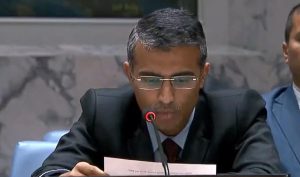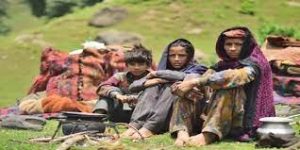Today Current Affairs: 5th November 2022 for UPSC IAS exams, State PSC exams, SSC CGL, State SSC, RRB, Railways, Banking Exam & IBPS, etc
Table of Contents
First Women Inspector Generals Of CRPF:

For the first time in the history of Central Reserve Police Force (CRPF), two women officers reached the rank of Inspector General (IG).
- Two women officers who were recently promoted to the rank of Inspector General are IG Seema Dhundiya and IG Annie Abraham.
- While IG Seema Dhundiya will head the Bihar Sector of CRPF, IG Annie Abraham will head the Rapid Action Force (RAF).
- In 1986, the CRPF became the first Central Armed Police Force (CAPF) to induct women in combat.
- Both Seema Dhundia and Annie Abraham were in the first batch of women officers who were inducted into CRPF in 1987. They had illustrious careers over the years.
- IG Seema Dhundia is known for serving in highly sensitive areas across India.
- She actively participated in raising 2nd Mahila Battalion of the CRPF.
India Abstains Russia’s UNSC Resolution On Bioweapons:

India has abstained from a UNSC resolution sponsored by Russia alleging US and Ukraine carrying out “military biological activities” violating the Biological Weapons Convention (BWC).
- Before this resolution, India recently abstained from another UNSC resolution, which sought to declare Russia’s annexation of four Ukrainian territories as invalid.Biological weapons use microbiological agents (such as bacteria, viruses or fungi) or toxins to intentionally cause death or harm to humans, animals, or plants.
Biological Weapon Convention:
- Formally known as “The Convention on the Prohibition of the Development, Production and Stockpiling of Bacteriological (Biological) and Toxin Weapons and on their Destruction”, the Convention was negotiated by the Conference of the Committee on Disarmament in Geneva, Switzerland.
- It entered into force on 26th March 1975.
- It effectively prohibits the development, production, acquisition, transfer, stockpiling and use of biological and toxin weapons.
Cordy Gold Nanoparticles (Cor-AuNPs) : Fungus-Powered Nanogold Particles

Assam’s Bodoland University is part of collaborative research on fungus-powered biosynthesised nanogold particles that has received an international patent from Germany.
- Cordy gold nanoparticles (Cor-AuNPs) is the outcome of a collaborative experiment by scientists from four Indian institutions, has earned an international patent from Germany.
- These nanoparticles, derived from the synthesis of the extracts of Cordyceps militaris and gold salts, could make drug delivery in the human body faster and surer.
- Cordyceps militarisis a high value parasitic fungus, lab-grown at the Department of Biotechnology’s Technology Incubation Centre (TIC) in Bodoland University, one of the collaborators of the patented research work.
- Gold salts are ionic chemical compounds of gold generally used in medicine.
- Wild Cordyceps mushroom is found in the eastern Himalayan belt.
- Penetration in the cells is more when the drug particles are smaller.
- Cordyceps militaris, called super mushroom because of its tremendous medicinal properties, adds bioactive components to the synthesis of gold nanoparticles for better penetration.
World Puzzle Championship 2022:

Prasanna Seshadri has won India’s first silver medal after 11 years of trying at the World Puzzle Championship (WPC).
- The WPC gold this year went to Japan’s Ken Endo.
- The World Puzzle Championship is an annual international puzzle competition run by the World Puzzle Federation.
- All the puzzles in the competition are pure-logic problems based on simple principles, designed to be playable regardless of language or culture.
- The World Puzzle Federation is an association of legal bodies with an interest in puzzles.
- Only one organization per country can belong to the WPF.
Pahari Ethnic Group In The Scheduled Tribes:

The National Commission for Scheduled Tribes (NCST) has now cleared the way for the inclusion of the ‘Pahari ethnic group’ in the Scheduled Tribes (ST) list of the Union Territory of Jammu and Kashmir.
- The commission also called for the inclusion of the “Paddari tribe”, “Koli” and “Gadda Brahman” communities to be included in the ST list of J&K.
- Currently, Jammu and Kashmir has 12 communities that have been notified as STs.
- The process to include tribes in the ST list begins with the recommendation from the respective State governments, which are then sent to the Tribal Affairs Ministry, which reviews and sends them to the Registrar General of India for approval.
- This is followed by the NCST approval before the list is sent to the Cabinet for a final decision.
- The final decision rests with the President’s office issuing a notification specifying the changes under powers vested in it from Articles 342.
- The inclusion of any community in the Scheduled Tribes come into effect only after the President assents to a Bill that amends the Constitution (Scheduled Tribes) Order, 1950, as is appropriate, after it is passed by both the Lok Sabha and Rajya Sabha.
Twin Transition:

World Economic Forum has highlighted this word as a key to sustainable growth.
- A twin transition basically means including digital/technological improvements with the Environmental sustainability goals. E.g. using carbon capture technology, and adopting a circular development model.
- Digitization has a key role to play in supporting sustainable growth during this decisive decade for action on climate change. Indeed, digital solutions could reduce global emissions by 20%, according to the World Economic Forum.
- By adopting a ‘twin transition’ approach, leaders can bring the digital and sustainability agendas together to future-proof their organizations.




